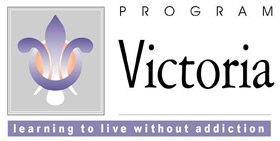|

The
Victoria Program is a Medical and Psychological
Therapy to overcome Dependency on Alcohol and/or
other substances, based on the Cognitive-Behavioural
Methodology and directed to the Prevention of
Relapses. It is developed throughout three phases:
1. Admission
A series of individual and family
sessions of Information, Motivation and Assessment.
Whenever possible, this Admission
Procedure is undertaken somewhere local to the
client's residence.
2. Treatment
Ten days of intensive Residential
Therapy with our unique Methodology.
This process is carried out
in groups of four to eight people, whith a permanent
medical and psychological Treatment Team, in
a calm and comfortable Hotel located nearby Marbella, Spain.
The therapeutic components of
the Program are:
- The ABC of Addiction.-
Group sessions on Behavioural Analysis of drinking
alcohol, or using other drugs. This process
will help the client to have a better understanding
of the problem and begin to identify the solutions.
- Rejection
Therapy.-
Individual sessions designed to develop a negative
reaction to the abused substances and thus removing
the positive expectations of alcoholic beverages
and/or drugs.
- Education.-
Group sessions, with the help of a varied sellection
of audio and video materials, to enphasize the
consequences of drinking, or other drug abuse.
- Relaxation
& Stress Management.-
The emotional discomfort is often the trigger
of a relapse. In these sessions the client will
learn a simple and effective procedure of physical
and mental relaxation, along with visualization
techniques designed to successfully prepare
them to overcome risk situations.
- Cognitive
Therapy.-
A series of lectures on cognitive techniques
that teach the clients how to manage, and overcome,
their negative moods, i. e. stress, depression,
low self-esteem, etc.
- The
New You.-
Individual sessions of personal goal planning
to help the clients initiate the changes necessary
when returning to daily life.
- Relapse
Prevention.-
Group sessions that are specifically aimed to
teach clients how to identify the High Risk
Situations and to develop and practice positive
alternative behaviours.
3. Follow-on
Individual and family sessions
to consolidate the changes, to supervise the
evolution and to prevent relapses.
The Client continues for at
least a year with non-residential consultations,
with the same therapist, if possible, who took
care of their Admission Phase.
|